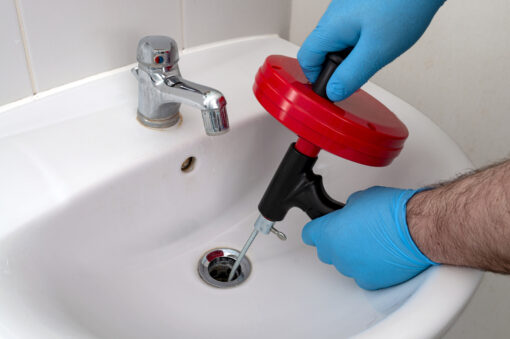At Preferred Plumbing and Rooter Service we have been helping clients by clearing clogged drains for years. While we are always happy to answer any questions you have about this issue, we have created a handy guide below with answers to three of the most commonly asked questions we get about clogged drains.
If you have additional questions, or would like us to come out and help with drain cleaning, contact Preferred Plumbing and Rooter Service at (877) 298-8105.
Why Do Drains Clog?
Drains clog for a variety of reasons. The most typical cause of drain clogs is when anything becomes caught in the pipe, such as food, trash, or paper goods. Clogging generally acts to force these items out of the system by forcing them down the drain.
The material blocking your pipe, on the other hand, isn’t always a single, easily flushed thing. Rather, it’s a clump of tenacious, sticky buildup that’s clinging to the insides of your pipes. Clogs can also be caused by severe pipe damage and disjointing.
The following are examples of common chemicals or issues that might block your pipes:
- Scum of Sediment Rust Soap
- Grease, oil, and fat are all types of fat (FOG)
- Remains of coffee grinds and other sticky foods
- Sludge and filth
- Tree roots are encroaching on the sewage pipe
- Pipe damage or dislocations
Why Should I Hire a Professional to Clean My Drains?
Most blockages can be cleared using DIY drain cleaning methods like plunging or snaking, but they don’t address why the clog formed in the first place. If you have a buildup of grease in your kitchen drain, for example, blockages can occur when other items get trapped on the grease as they go down the drain. Plunging can help drive these items down the drain and eliminate the blockage, but it won’t remove the grease from the pipe walls.
The longer you ignore the root source of your blockages (such as grease accumulation), the worse they get. Regardless of how often you plunge or use a home drain cleaner, clogs will grow more common with time. Even worse, some issues, like as tree roots, silt, or rust, can cause irreversible damage to your pipes if left unattended for a long time. Fortunately, both blockages and their underlying causes may be efficiently dealt with by expert drain cleaning.
What is the Procedure for Professional Drain Cleaning?
The act of properly removing debris accumulation off of the walls and interior of a drain pipe is known as professional drain cleaning. The exact mechanics of how we do this are determined on the type of the blockages within the pipe. To blast away buildup without harming the pipes, we can utilize auto-rooting technology, plumber’s snakes, and even high-pressure hydro jet nozzles. Call Preferred Plumbing and Rooter Service now at (877) 298-8105 top learn how we can get started.

